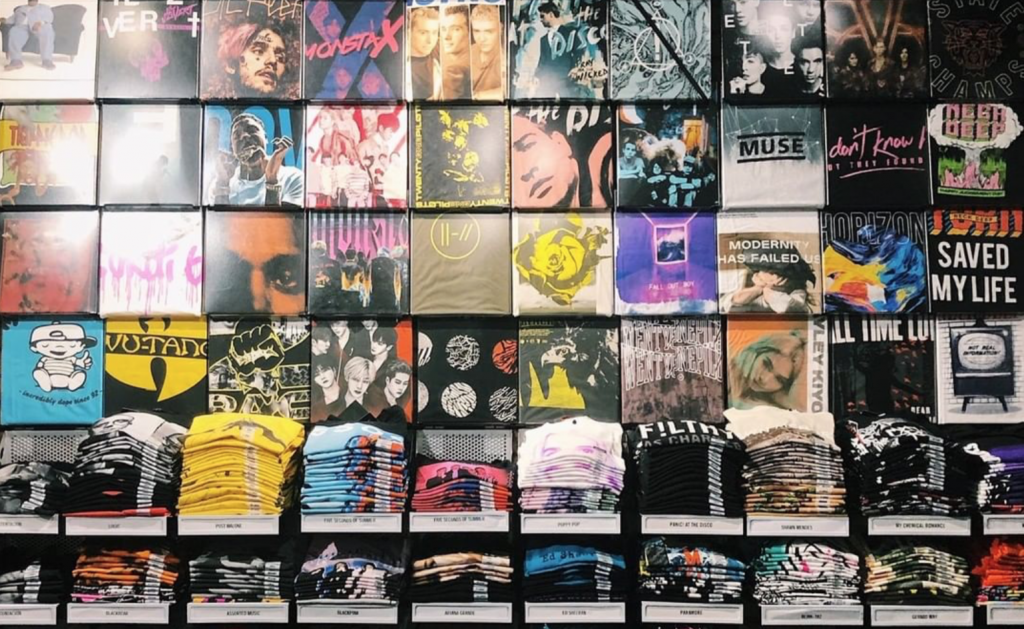“Hot Topic is still hot,” the New York Times declared last month, noting that the privately-held company’s “endurance in the narrowing market of juniors apparel suggests that [its] inventory is selling,” and that its “sustained brick-and-mortar presence” – Hot Topic currently operates 676 stores in the U.S. and Canada – “may also indicate its health amid reports of record-high mall vacancies and closures.”
Such vitality does not mean that Hot Topic is not in hot water, though. In fact, the Sycamore Partners-owned shopping mall stalwart has been at the center of a text message-centric legal battle that is being watched by mass-market retailers and fashion brands, alike, particularly given that while there has been a spike in litigation centering on unsolicited communications between brands and consumers, “federal courts are still struggling to make sense of the distinction between informational and marketing messages, consumer consent and revocation, and sender liability.”
Hot Topic landed on the receiving end of a class action lawsuit filed in the U.S. District Court for the Central District of California in July 2016 by Diana Soukhaphonh, who asserted that by sending her a promotional text message, Hot Topic had run afoul of the Telephone Consumer Protection Act (“TCPA”). According to Ms. Soukhaphonh’s complaint, she provided her cellphone number to Hot Topic in connection with a purchase transaction on its website in May 2015, but never consented to receiving text messages from the company.
In fact, Soukhaphonh says she specified that email was her preferred mode of communication. Nonetheless, six months after making her purchase, she received two texts from the company. Hot Topic argued in response that Soukhaphonh had failed to uncheck a pre-checked box indicating “Yes, I want to receive text messages about special events and offers,” and thus, expressly consented to the company contacting her.
The court – shooting down Hot Topic’s motion for summary judgment in February 2018 – held that because Hot Topic employees had access to and are able to update consumers’ information by way of the company’s vendor platform, Hot Topic may have changed Soukhaphonh’s preferences, thereby giving rise to “a genuine dispute of material fact regarding whether [Soukhaphonh] opted into receiving text messages during her May 26, 2015, online transaction,” or more specifically, where she provided the legally-mandated express consent for the text messages at issue in the case.
As of this week, however, the case appears to close to the end, with Soukhaphonh and a class of “similarly situated” Hot Topic customers putting forth a $2.9 million settlement for court approval, as first reported by Law360.
That nearly $3 million sum shows how quickly the $500 statutory damages figure for each TCPA violation – aka for each text message – can add up, and just how critical it is, per Manatt Phelps & Phillips LLP’s Christine M. Reilly and Kristin E. Haule, that retailers and brands “keep detailed and secure records about when and how consent was provided for each consumer [they contact]” by way of automatic dialing systems, artificial or prerecorded voice messages, and text messages.
As for Hot Topic’s continue success in the ever-precarious retail landscape, MaryLeigh Bliss, the vice president of content at youth marketing research firm Ypulse, told the Times that the nearly 30-year old retailer has “completely kept up with what young consumers want” – from Ariana Grande “Sweetener” t-shirts (thanks to a licensing agreement with the singer) to nostalgia-soaked fan gear.
“What Hot Topic has managed to do really amazingly — and quietly,” she says, “is to pivot their products and their brand perception to cater to the next generation and what they’re most interested in.”
*The case is Diana Soukhaphonh v. Hot Topic, Inc., 2:16-cv-05124 (C.D.Cal).











